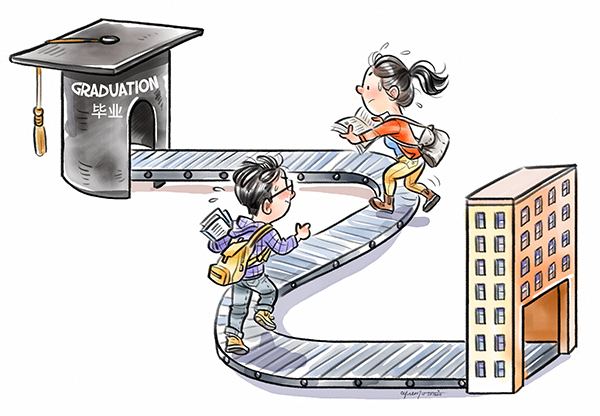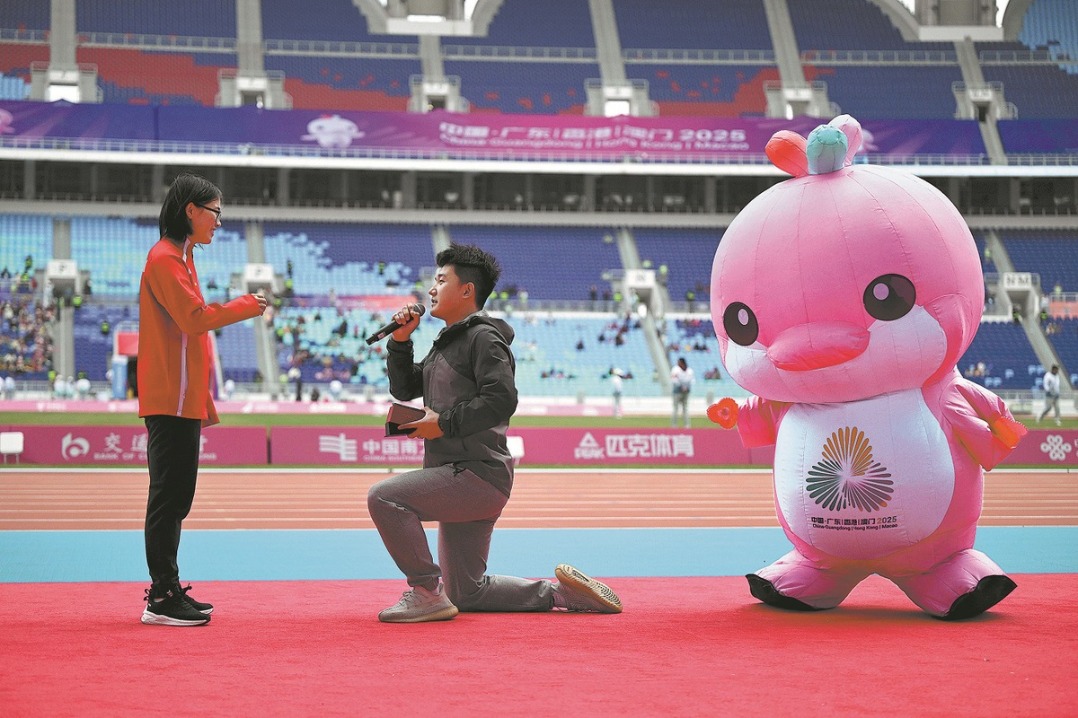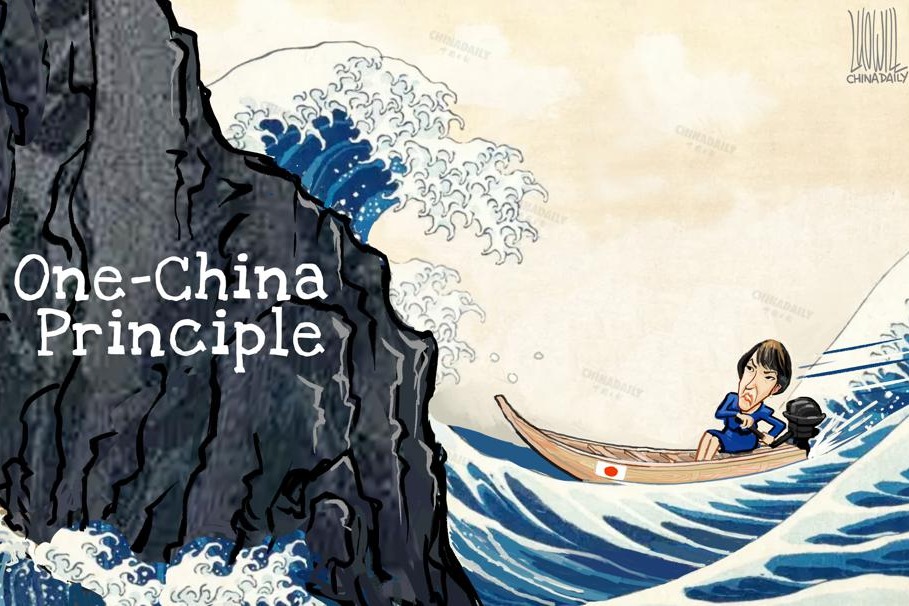End to undergraduates' cushy lives


Editor's Note: The Ministry of Education issued guidelines on reforming college education to improve the quality of graduates on Saturday. They include canceling qingkao, the make-up exams held right before graduation. Two experts share their views on this issue with China Daily's Yao Yuxin. Excerpts follow:
Saying goodbye to make-up exams will not be easy
It's a common practice in Chinese universities to give senior students who would otherwise fail to graduate another chance on the eve of graduation by letting them sit make-up exams.
To ensure the would-be students graduate smoothly, schools will usually lower the degree of difficulty of these make-up exams. Knowing that their commencements are bound to be held, students feel little pressure to study hard to graduate and instead idle away their time on campus.
Obviously, the existence of qingkao lowers the quality of China's higher education. But while the cancellation of qingkao has been frequently mentioned since last August, there are still challenges to be overcome to put an end to the practice.
Since their graduation and graduate employment rates are significant factors for the evaluation of a school's working performance by the education authorities, reducing the number of students who graduate is certainly not in line with the interests of colleges. Actually, some schools will request teachers give pupils higher marks in order to win an advantage over their competitors.
Thus, if the path to graduation is blocked by ending qingkao, it is possible that teachers will be required to make it easier for students in their finals, which will lower the standard of graduates entering the work force.
Besides, sweeping out undergraduates with failing grades would put the universities under enormous pressure from parents who would likely attribute their children's failure in exams to bad teaching instead of poor learning.
So to relieve the concerns about dismissing badly performing students and improve the quality of education, college enrolment should be reformed. For instance, a mechanism could be established so that students can change college. That would mean colleges would have no qualms about removing underperforming students as the latter would have a channel to transfer to another.
Xiong Bingqi, deputy director of the 21st Century Education Research Institute.
Lecturers should do more teaching
The Ministry of Education has issued a guideline once again to further deepen reform of undergraduate education.
For a long time, students have found life on campus much easier compared to the hard work they were required to do in high school in order to win their place at a college, while universities have paid more attention to research, neglecting teaching and the cultivation of talents, this has led to a decline in the quality of college graduates.
The guidelines which are strict on the teaching process and graduation requirements, make it clear that enrollment in college does not automatically guarantee students a diploma. Students will need to change their mindset and realize that doing well in the college entrance exams is not the destination but a new start for their studies.
It is also critical to increase the proportion of teaching in lecturers' work performance evaluations, as at present the number of papers published still plays too large a part in promotion and career achievement. Giving teaching greater weight in their assessments would motivate more lecturers, especially excellent professors to work on the front line and teach basic courses for undergraduates.
In addition, the rules in the guideline involving giving zero tolerance to academic fraud will also help improve undergraduate education.
Chu Zhaohui, a senior researcher at the National Institute of Education Sciences
The views don't necessarily represent those of China Daily.

































